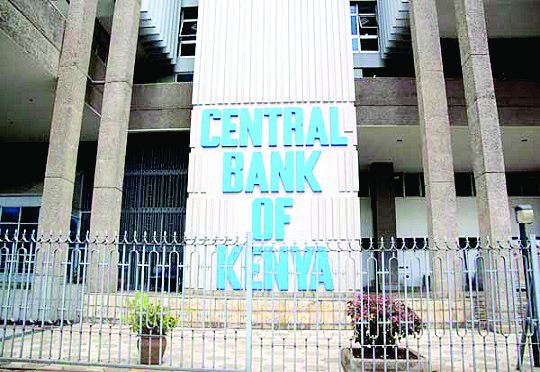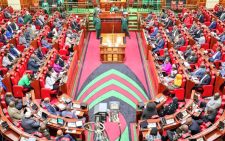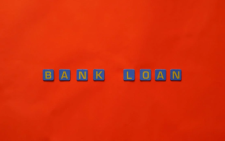CBK raises key rate to stabilise sinking shilling

Central Bank of Kenya (CBK) yesterday raised the key lending rate one more time by 200 basis points to a historic high of 12.5 per cent to wrap the year in a decision that will present borrowers with costly credit.
It is the first time in the current 2023/24 fiscal year the apex bank is increasing the Central Bank Rate (CBR) from the current 10.5 per cent after leaving it largely unchanged for two consecutive review periods since June 2023.
CBK says the hawkish benchmark rate is linked to the sinking shilling against the dollar, which now contributes close to half of the country’s inflation levels, thus necessitating a tighter monetary stance.
Monetary Policy Committee (MPC) took the stance despite the falling shilling now devaluing at a slower pace compared to the previous months, while the inflation rate – a measure of annual changes in cost of living – has been within the government’s targeted range in the past five months.
The shilling exchanged yesterday at Sh153.27 per dollar. However, the inflation rate dropped marginally to 6.8 per cent in November 2023, with the exchange rate depreciation contributing about 3 percentage points. “The MPC, therefore, concluded that there is a need to adjust the monetary policy stance to address the pressures on the exchange rate and mitigate second round effects including from global prices,” CBK Governor Kamau Thugge said in a statement yesterday.
“This will ensure that inflationary expectations remain anchored while setting inflation on a firm downward path towards the 5.0 per cent mid-point of the target range.” Central banks around the world are increasing lending rates sharply as they try to combat inflation rates, forcing developing economies like Kenya to follow suit.
Anticipated deceleration of the global economy in 2024 caused by the impact of high-interest rates in advanced economies, weakening demand particularly in China and the Eurozone, and heightened geopolitical tensions also explains CBK’s move to hike the rate. Deciding that the inflation rate has eased enough to warrant a start of CBR cuts may, therefore, seem distant, with troubled capital markets, complications of reduced export levels, and servicing of huge public debt all coming into play.
“The Committee noted that public sector external debt service has risen, thereby offsetting some of the gains made towards the Government’s strong fiscal consolidation,” CBK stated. The continued weakening of the exchange rate is contributing to a significant increase in the Kenya shilling value of foreign currency denominated debt. However, in the domestic market, commercial banks will be forced to increase the interest rates of the loans extended to businesses and households.
This poses the risk of increased defaults among borrowers as well as reduced uptake of the credit necessary to help resuscitate the depressed economy.
CBK went against commercial banks’ desperate calls for at least retention of CBR at 10.5 per cent, which is the first early blow as it remains cautious of the economic situation in the new year.
“A further rate hike to tame potential inflationary pressures – if implemented fully by banks – would further escalate credit risk in the market and a build-up in non-performing loans with detrimental effects on the industry’s stability,” Kenya Bankers Association (KBA) stated in a research note last month.
Nearly all the banks, except KCB and Stanbic Bank, realised a drastic rise in bad loans in the nine months ending September 2023, highlighting the tough economic environment which has left many borrowers struggling to service their loans.
Non-performing loans (NPLs) reached a total of Sh612.5 billion in September, denting banks’ profitability and working capital as they are required to set aside some cash in anticipation of defaults in the next three months.












